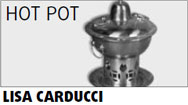It's often said that you have mastered a language when you know its proverbs and can use them properly in a conversation or in writing. I for one, though, don't like to quote proverbs or hear others quoting them.

Who has not heard hundreds of time that "in heaven there is the paradise, on Earth there is Hangzhou", or Confucius' "what a pleasure to have friends coming from afar!" or, talking about the good of diversity, Bai hua qi fang; bai jia zheng ming (All the flowers are blossoming; different schools teach different lessons).
I have never paid much attention to studying proverbs in the five languages I can speak, so in some people's eyes I haven't even mastered my mother tongue!
The third time I came to China, in 1991, was for good, so I started teaching myself Chinese from the outset, with books and cassettes, and by asking people questions.
One of my students once told me: "The day you really know how to use bu hao yi si (excuse me) you can say you are starting to know Chinese."
Studying languages is not only an interesting pursuit, it is also one you can enjoy while trying. Take Chinese characters, for example. The one for home (jia) is made up of a pig under a roof. This means that deep in the Chinese mind, having a pig and a roof is akin to having a home.
When the character shows a woman under the roof, however, the character means an, and you enjoy peace - but if the woman has a son next to her, it means "good" (hao). Single men take note!
Some words are composed of two opposite elements: relaxed and tight (song jin) means "elastic"; big and small (da xiao) is "size"; much and little (duo shao) combine for "how much".
